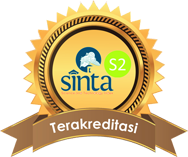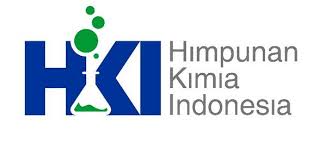EFFECTIVENESS OF GUIDED DISCOVERY BASED THERMOCHEMISTRY MODULE TO TRAIN CRITICAL THINKING SKILLS BASED ON GENDER DIFFERENCES
DOI:
https://doi.org/10.15575/jtk.v5i1.8149Keywords:
module, thermochemistry, guided discovery, critical thinking, genderAbstract
Critical thinking skills are important competencies that need to be developed in chemistry learning. This study aimed to determine the effectiveness of the guided discovery-based thermochemistry module in developing critical thinking skills based on gender differences. The subject of this research was 76 females and 20 males of class XI Mathematics and Nature Science from three high schools in Ponorogo, Indonesia. This study used one school for each category, namely high, medium, and low. The research method used a quasi-experimental design with one group pretest-posttest. The data analysis technique used T-test with SPSS 21 software. The result showed that the average increase in student scores or normality gain score (n-gain) was 0.5050 to 0.6362, which means students' critical thinking skills improved after the implementation of guided discovery-based thermochemistry modules. T-test result in high category schools obtained T count > T table (2.142> 2.032), which showed that there are significant differences between the critical thinking skills of female and male students. Meanwhile, T count and T table in medium category school were 1.353 and 2.034, respectively. T count and T table in low category school respectively 1.106 and 2.068. Analysis of T-test results in medium and low school categories can be written -T table < T count < T table, is means there is no significant differences between the critical thinking skills of female and male students. Thus, guided discovery-based thermochemistry modules are effectively applied to high, medium and low school categories.
References
Basri, H., Purwanto, As’ari, A. R., & Sisworo. (2019). Investigating Critical Thinking Skill of Junior High School in Solving Mathematical Problem. International Journal of Instruction, 12(2), 745-758
Brown, B. (2015). Twenty First Century Skills : A Bermuda College Perspective. Voice in Education, 1, 58–64.
Changwong, K., Sukkamart, A., & Sisan, B. (2018). Critical Thinking Skill Development: Analysis Of A New Learning Management Model For Thai High Schools. Journal of International Studies, 11(2), 37–48.
Dori, Y. J., Zohar, A., Fischer-Shachor, D., Kohan-Mass, J., & Carmi, M. (2018). Gender-Fair Assessment of Young Gifted Students’ Scientific Thinking Skills. International Journal of Science Education, 40(6), 595–620.
Facione, P. A. (2015). Critical Thinking: What It Is and Why It Counts. Insight Assessment.
Fatokun, K., & Eniayeju, P. (2014). The Effect of Concept Mapping-Guided discovery Integrated Teaching Approach on Chemistry Students’ Achievement and Retention. Educational Research and Reviews, 9(22), 1218–1223.
Fernandi, R, A, U, I., Firman, H., & Rusyati, L. (2018). The Relationship Among Critical Thinking Skill Measured By Science Virtual Test, Gender, And Motivation In 9th Grade Students. International Seminar of Mathematics, Science and Computer Science Education, Journal of Physics: Conf. Series.
Fetalvero, E. G. (2017). Consensus-Based Education: Its Effect on College Students’ Achievement in Bioenergetics as Moderated by Gender and Learning Styles. Journal of Baltic Science Education, 16(4), 533-548.
Firdaus, F., Kailani, I., Bakar, M. N. B., & Bakry, B. (2015). Developing Critical Thinking Skills of Students in Mathematics Learning. Journal of Education and Learning, 9(3), 226–236.
Fitriani, H., Zubaidah, S., & Mahanal, S. (2019). Jurnal Pendidikan IPA Indonesia and Critical Analysis Skills. Jurnal Pendidikan IPA Indonesia, 8(3), 379–390.
Fuad, N. M., Zubaidah, S., Mahanal, S., & Suarsini, E. (2017). Improving Junior High Schools’ Critical Thinking Skills Based on Test Three Different Models of Learning. International Journal of Instruction, 10(1), 101–116.
Halpern, D. F. (2014). Thought And Knowledge 5th Edition. New York & London: Psychology Press.
Harjo, B., Kartowagiran, B., & Mahmudi, A. (2019). Development of Critical Thinking Skill Instruments on Mathematical Learning High School. International Journal of Instruction, 12(4), 149–166.
Irwing, P., & Lynn, R. (2005). Sex Differences in Means And Variability on The Progressive Matrices In University Students: A Meta-Analysis. British Journal Of Psychology, 96(4), 505-524.
Jacob, S. M. (2012). Mathematical Achievement And Critical Thinking Skills In Asynchronous Discussion Forums. Procedia - Social and Behavioral Sciences, 31, 800–804.
Mahanal, S., Tendrita, M., Ramadhan, F., Ismirawati, N., & Zubaidah, S. (2017). The Analysis of Students’ Critical Thinking Skills on Biology Subject. Anatolian Journal of Instruction, 2(2), 21-39.
Makoolati, N., Amini, M., Raisi, H., Yazdani, S., & Razeghi, A. V. (2015). The Effectiveness Of Guided Discovery Learning On The Learning And Satisfaction Of Nursing Students. Hormozgan Medical Journal, 18(6), 490–496.
Mawaddah, Ahmad, A., & Duskri, M. (2018). Gender Differences Of Mathematical Critical Thinking Skills Of Secondary School Students. The 6th South East Asia Design Research International Conference, Journal of Physics: Conf. Series.
Mayer, R. E. (2004). Should There Be a Three-Strikes Rule Against Pure Discovery Learning? The Case for Guided Methods of Instruction. American Psychologist, 59(1), 14–19.
Moon, J. (2008). Critical Thinking: An Exploration Of Theory And Practice. London & New York: Routledge.
Moore, B. N., & Parker, R. (2009). Critical Thinking. Boston, MA: McGraw-Hill.
Perdana, R., Budiyono, Sajidan, & Sukarmin. (2019). Analysis of Student Critical and Creative Thinking (CCT) Skills on Chemistry : A Study of Gender Differences. Journal of Educational and Social Research, 9(4), 43–52.
Perwitasari, N., & Djukri, D. (2018). Developing Thematic-Integrated Module Based On Guided Discovery To Improve Critical Thinking And Student Science Attitude. Jurnal Prima Edukasia, 6(1), 44–55.
Robi, A. A., Hobri, & Dafik. (2018). The Analysis of Critical Thinking Skill of Version P21 in Solving the Problems of Two Dimensional Arithmetic Derived from the Implementation of Guided discovery Learning. International Journal of Scientific Research and Management, 6(1), 6–13.
Rufii, R. (2015). Developing Module on Constructivist Learning Strategies to Promote Students’ Independence and Performance. International Journal of Education, 7(1), 18–28.
Situmorang, A., & Handayani, S. (2017). Effectiveness Module Development: Implementation on Learning History. The International Journal of Social Sciences and Humanities Invention, 4(8), 3856-3859.
Situmorang, M., Sinaga, M., Purba, J., Daulay, S. I., Simorangkir, M., Sitorus, M., & Sudrajat, A. (2018). Implementation of Innovative Chemistry Learning Material with Guided Tasks to Improve Students’ Competence. Journal of Baltic Science Education, 17(4), 535–550.
Suardana, I. Nyoman, Redhana, I. Wayan, Sudiatmika, A. A. I. A. R., &Selamat, I. Nyoman. (2018). Students’ Critical Thinking Skills in Chemistry Learning Using Local Culture-Based 7E Learning Cycle Model. International Journal of Instruction, 11(2), 399-412.
Syah, M. (2014). Psikologi Pendidikan dengan Pendekatan Baru. Bandung: PT Remaja Rosda Karya.
Tiruneh, D. T., De Cock, M., Weldeslassie, A. G., Elen, J., & Janssen, R. (2017). Measuring Critical Thinking In Physics: Development And Validation Of A Critical Thinking Test In Electricity And Magnetism. International Journal of Science and Mathematics Education, 15(4), 663–682.
Utami, B., Saputro, S., Ashadi, Masykuri, M., Probosari, R. M., & Sutanto, A. (2018). Students Critical Thinking Skills Profile: Constructing Best Strategy in Learning Chemistry. International Journal of Pedagogy and Teacher Education, 2, 71-76.
Verawati, Arifina, S. R., Idrisa, R., & Hamid, N. A. A. (2010). Gender Analysis of MyCT (Malaysian Critical Thinking) Instrument. Procedia - Social and Behavioral Sciences, 7(C), 70-76.
Vong, S. A., & Kaewurai, W. (2017). Instructional Model Development To Enhance Critical Thinking And Critical Thinking Teaching Ability Of Trainee Students At Regional Teaching Training Center In Takeo Province, Cambodia. Kasetsart Journal of Social Sciences, 38(1), 88–95.
Wan, Z. H., & Lee, J. C. K. (2017). Hong Kong Secondary School Students’ Attitudes Towards Science: A Study of Structural Models and Gender Differences. International Journal of Science Education, 39(5), 507–527.
Wulandari, I. G. A. P. A., Sa’dijah, C., As’ari, A. R., & Rahardjo, S. (2018). Modified Guided discovery Model : A Conceptual Framework for Designing Learning Model Using Guided discovery to Promote Student’s Analytical Thinking Skills. 2nd International Conference on Statistics, Mathematics, Teaching, and Research, Journal of Physics: Conf. Series.
Yang, S. H. (2016). Conceptualizing Effective Feedback Practice Through An Online Community Of Inquiry. Computers & Education, 94, 162-177.
Yerimadesi, Bayharti, Jannah, S. M., Lufri, Festiyed, & Kiram, Y. (2018). Validity and Practitality of Acid-Base Module Based on Guided discovery Learning for Senior High School. International Conference on Mathematics, Science, Education and Technology (ICOMSET), Journal of Physics: Conf. Series.
Downloads
Published
How to Cite
Issue
Section
Citation Check
License
Authors who publish with this journal agree to the following terms:
- Authors retain copyright and grant the journal right of first publication with the work simultaneously licensed under a Creative Commons Attribution-ShareAlike that allows others to share the work with an acknowledgement of the work's authorship and initial publication in this journal.
- Authors are able to enter into separate, additional contractual arrangements for the non-exclusive distribution of the journal's published version of the work (e.g., post it to an institutional repository or publish it in a book), with an acknowledgement of its initial publication in this journal.
- Authors are permitted and encouraged to post their work online (e.g., in institutional repositories or on their website) prior to and during the submission process, as it can lead to productive exchanges, as well as earlier and greater citation of published work (See The Effect of Open Access).









